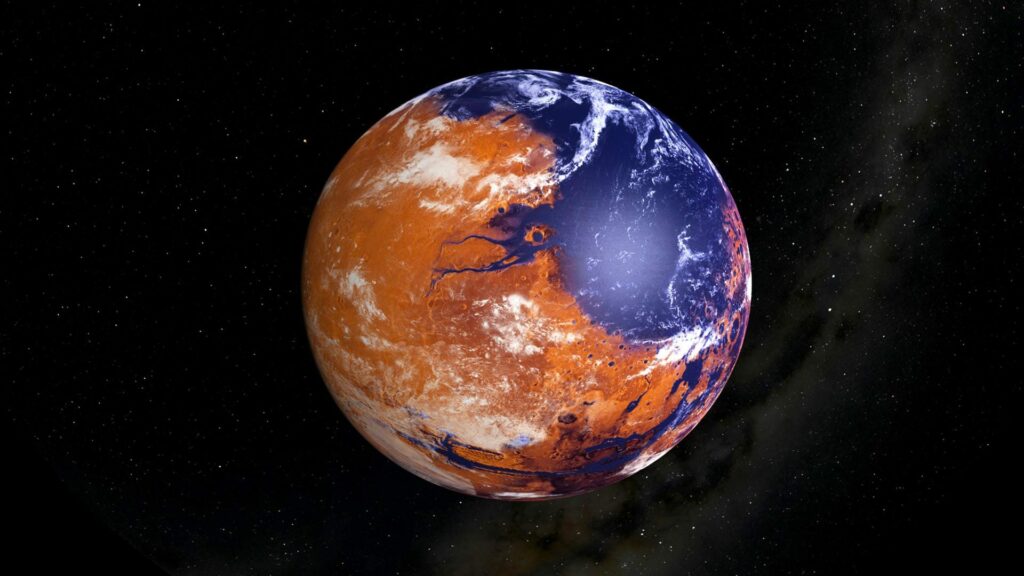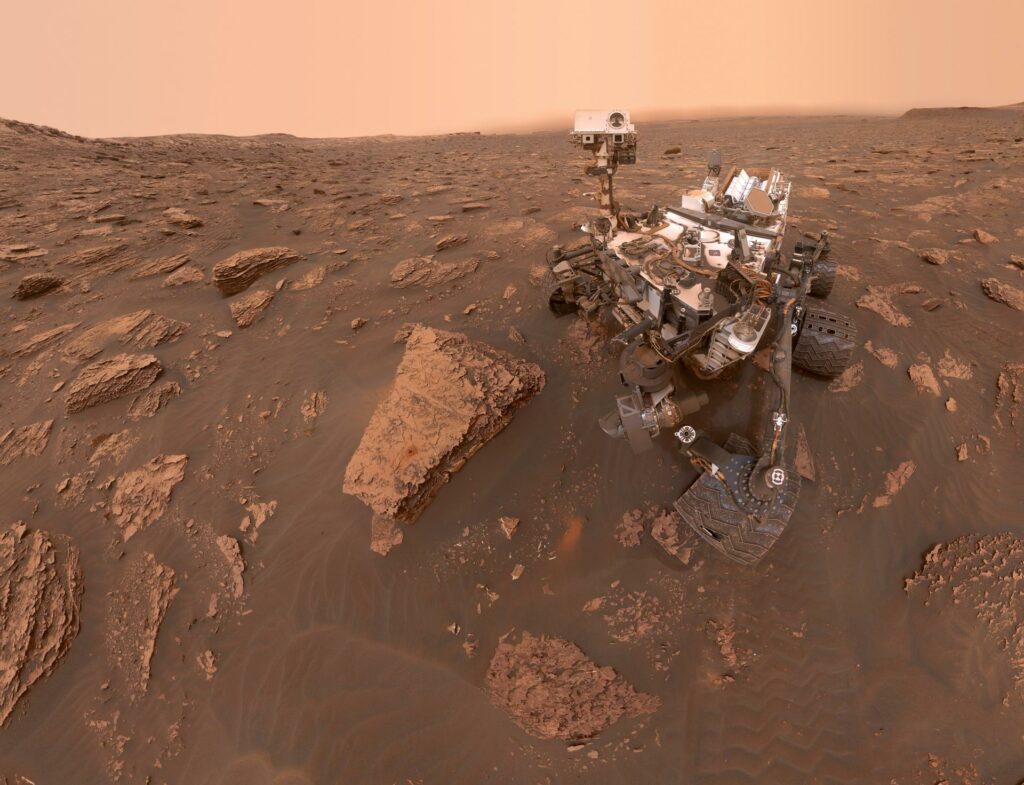Using data collected by the Curiosity rover, astrobiologists have created a new model of the ancient Martian atmosphere. It showed that the greenhouse effect could keep the planet’s ocean from freezing.

The climate of ancient Mars is a long-standing subject of debate among scientists. On the one hand, spacecraft collected a lot of data indicating that billions of years ago the planet had a full hydrosphere. On the other hand, in those days the Sun shone 30% weaker than it is now. This raises the logical question of whether there was a permanent ocean of liquid water on Mars, or whether it melted only periodically during volcanic eruptions and asteroid falls.
During a recent NASA-supported study, a team of astrobiologists studied the ratio of deuterium and hydrogen in the Martian atmosphere. Deuterium is a stable isotope of hydrogen that contains one proton and one neutron in the nucleus. It is formed during natural processes, but it is much rarer than ordinary hydrogen atoms (they do not contain a neutron).
Since deuterium atoms are heavier than hydrogen atoms, it is much more difficult for them to be knocked out of the Martian atmosphere by the solar wind. Therefore, scientists are very interested in their ratio. The higher it is, the more ordinary hydrogen Mars has lost.

The Curiosity rover measured the ratio of deuterium and hydrogen in clays formed over 3 billion years ago during the Hesperian era. At that time, Mars was experiencing massive volcanic activity and flooding. Comparing it with the modern ratio of deuterium and hydrogen, scientists have found that today the concentration of deuterium is much higher than in the ancient era. This indicates massive water loss by Mars.
Based on these data, the researchers created a new model of the Martian atmosphere. It showed that a powerful greenhouse effect could keep the planet’s ocean from freezing and provide stable climatic conditions for millions of years. During this period, Mars had all the necessary conditions for prebiotic evolution — the stage preceding the appearance of life.
You can also read about how the Perseverance rover explores the sandy pass in search of traces of ancient life.
According to https://astrobiology.nasa.gov
Follow us on Twitter to get the most interesting space news in time
https://twitter.com/ust_magazine
